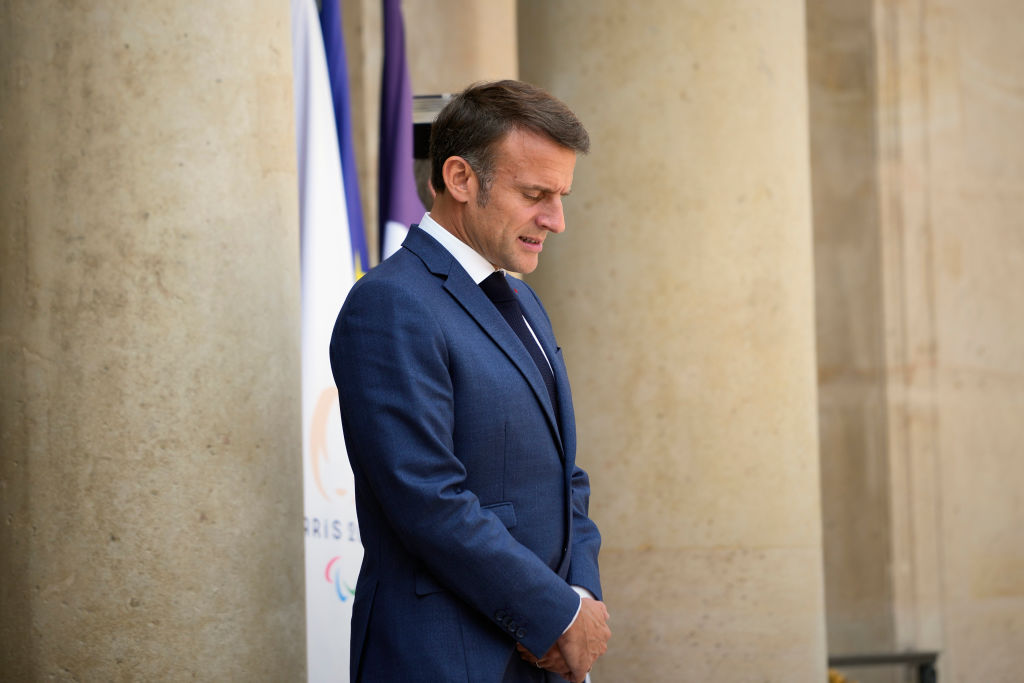After attempting to force through his budget without a majority in the National Assembly, French Prime Minister Michel Barnier has been deposed by an ad hoc coalition of the Left and the Rassemblement National. He managed only 246 votes in support, out of a possible 577.
When Emmanuel Macron appointed Barnier to be his next prime minister in September, the former Brexit negotiator knew he was signing up for perhaps the most difficult job in his long career. Just three months later, he now holds the record for the shortest-serving French government since 1958. The parliamentary arithmetic had become too complicated over the looming budget. Barnier and his minority government knew they were at the mercy of Marine Le Pen should she decide to join forces with the Left for a no-confidence vote. After weeks of toying with the Prime Minister, she has decided to end her transactional support for the centre.
As for Barnier’s successor, we are in uncharted waters. Macron could decide to appoint another member of Les Republicains in his stead. It would not be a particularly conciliatory sign, but crafting an alternative majority seems difficult. The centre-left does not appear any more willing to prop up Macron than it did last summer. A coalition with Le Pen is an obvious non-starter. And so the President will have to start again and hope that Barnier’s scalp appeases an angry public.
But as this political crisis continues to engulf France, fingers will increasingly be pointed at Macron himself, who is ultimately responsible for the current parliamentary chaos thanks to his decision to dissolve parliament in June. While he cannot call for another snap vote until next summer, he could break the deadlock by resigning and triggering anticipated presidential elections.
At present, this seems unlikely. But should the deadlock persist, Macron will be the target of attacks from all directions, including from within his own ranks. Within his increasingly fractious orbit, many have already been marking their ground for the next presidential race — including three of his four previous prime ministers — and now consider the President to be a disconnected lame duck solely responsible for the disastrous snap vote of this summer.
Giving weight to this vision, Le Monde paints an unflattering portrait of an isolated monarch surrounded by a small inner circle of obsequious advisors. In pompous Gaullean fashion, Macron now allegedly talks about his French compatriots as “mon peuple”. While Le Monde’s article should be taken with a grain of salt given the paper’s hostility to the President, Macron has undeniably lost his magic touch and lacks the political capital to wield any meaningful power.
In the background, another crisis is brewing — this time concerning Marine Le Pen. Accused of illegally using European Parliament funds for RN party staff, she could be hit with severe financial sanctions and, most importantly, deemed ineligible for the next three years, which would rule her out of the 2027 presidential election. Though a ruling is not expected until 31 March and Le Pen can appeal, she knows that this affair looms over her presidential ambitions.
One might connect this affair with her growing resolve to topple Barnier after being content for months to hold him under her “surveillance”, as she used to boast. Over the last few days, Le Pen has kept increasing her demands to the government in an apparent desire to see the Prime Minister trip over one of her many red lines and provide her with a casus belli, all the while hoping for the whole Macronist edifice to collapse. Le Pen made that clear on the day of the no-confidence vote when she urged Macron to leave: “It’s up to him to conclude if he is in capacity to stay […] and to determine if he can ignore the obviousness of the massive popular defiance which I consider definitive.”
The ever-ambitious Le Pen would have much to gain from an anticipated presidential election. On the Left, Jean-Luc Mélenchon of La France Insoumise would eagerly run for a fourth time. A charismatic but ageing figure with many staunch opponents on the Left, he would also benefit from a quick election which might preempt the emergence of potential rivals. But with what feels like the full span of the French political spectrum sharpening their blades, the throne they both covet might come with a painful bill.










Join the discussion
Join like minded readers that support our journalism by becoming a paid subscriber
To join the discussion in the comments, become a paid subscriber.
Join like minded readers that support our journalism, read unlimited articles and enjoy other subscriber-only benefits.
Subscribe